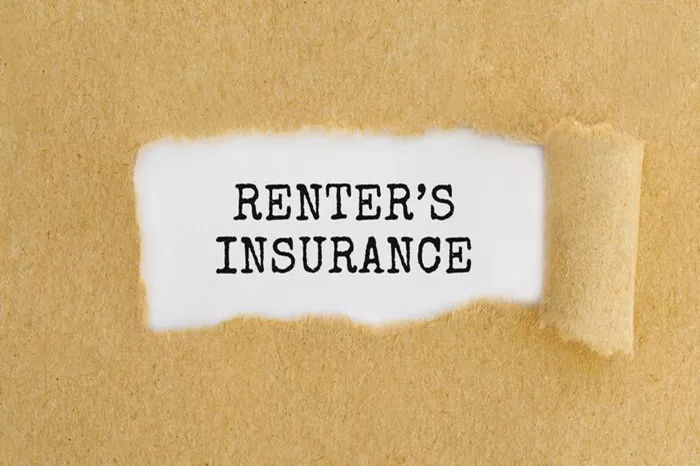Renters insurance is a crucial financial safety net for those who lease apartments, houses, or condos. It provides protection against unexpected events that could otherwise lead to financial distress. Understanding the average cost and coverage options of renters insurance is essential for tenants looking to safeguard their belongings and personal liability.
Understanding Renters Insurance
Renters insurance serves as a vital tool for protecting tenants’ interests and financial well-being. Here are key aspects to consider:
Comprehensive Coverage: Renters insurance typically includes coverage for personal belongings, liability protection, and additional living expenses incurred due to covered events.
Personal Property Coverage: This component reimburses tenants for the loss or damage of personal belongings due to covered perils such as fire, theft, vandalism, or natural disasters. It’s essential to choose between replacement cost coverage, which covers the cost of replacing items at today’s prices, and actual cash value coverage, which deducts depreciation from the reimbursement amount.
Liability Protection: Renters insurance includes liability coverage, which protects tenants against legal expenses and damages if they are held responsible for bodily injury or property damage to others. This coverage extends beyond the rental property, providing financial protection wherever the insured person goes.
Additional Living Expenses: In the event of a covered loss that renders the rental property uninhabitable, renters insurance typically covers additional living expenses. This coverage helps pay for temporary accommodations, meals, and other necessary expenses incurred while the tenant waits for their home to be repaired or finds alternative housing.
Understanding Policy Limits and Deductibles: It’s crucial for tenants to review their policy limits and deductibles carefully. Policy limits refer to the maximum amount an insurer will pay for covered losses, while deductibles are the out-of-pocket expenses tenants must pay before their insurance coverage kicks in. Choosing higher deductibles can lower monthly premiums but may result in higher out-of-pocket costs during a claim.
Exclusions: Renters insurance policies often come with exclusions, which are specific events or circumstances not covered by the policy. Common exclusions include damages caused by floods, earthquakes, intentional acts, and certain types of high-value items such as jewelry or fine art. Tenants should review their policy exclusions carefully and consider purchasing additional coverage or endorsements if needed.
Average Cost of Renters Insurance
Renters insurance premiums can vary based on several factors, making it essential for tenants to understand what influences these costs.
Factors Affecting Renters Insurance Premiums
Location: Rental properties in high-crime areas or regions prone to natural disasters typically have higher premiums.
Coverage Limits: Higher coverage limits for personal property, liability, and additional living expenses will result in higher premiums.
Deductible Choices: Opting for a higher deductible can lower monthly premiums but increases out-of-pocket costs in the event of a claim.
Claims History: A history of previous claims may lead to higher premiums.
Credit Score: Insurers often use credit scores to determine premiums, with higher scores potentially leading to lower rates.
Discounts: Many insurers offer discounts for bundling renters insurance with other policies, such as auto insurance, or for installing safety features in the rental property.
Average Monthly and Annual Costs
On average, renters can expect to pay between $15 to $30 per month for a standard renters insurance policy. This translates to an annual premium range of approximately $180 to $360.
Additional Considerations
While the average costs provide a general idea, actual premiums can vary significantly based on individual circumstances. Tenants should compare quotes from multiple insurers and consider factors beyond price, such as coverage limits, deductible options, and customer service reputation.
Tips for Lowering Costs
To potentially lower renters insurance premiums:
Increase Deductibles: Opting for a higher deductible can lower monthly premiums.
Bundle Policies: Insuring multiple policies (e.g., renters and auto) with the same insurer often qualifies for a discount.
Safety Measures: Installing smoke detectors, burglar alarms, and deadbolts can reduce premiums.
Maintain Good Credit: Improving or maintaining a good credit score may lead to lower insurance rates.
Review and Adjust Coverage: Regularly review coverage needs to ensure it aligns with current circumstances and adjust coverage limits accordingly.
Coverage Options
Renters insurance offers various coverage options tailored to meet tenants’ needs. These typically include:
Personal Property Coverage:
Coverage for belongings such as furniture, electronics, clothing, etc.
Replacement cost vs. actual cash value
Liability Protection:
Coverage for legal expenses
Protection against lawsuits for bodily injury or property damage
Additional Living Expenses:
Coverage for temporary relocation expenses
Limits and coverage duration
Understanding Policy Limits and Exclusions
While renters insurance provides broad coverage, it’s essential to understand policy limits and exclusions to avoid surprises during claims.
Common exclusions may include:
Flood or earthquake damage
Separate coverage options
Consideration of geographic risks
High-Value Items:
Coverage limits
Consideration of additional riders or endorsements
See Also: What Does Renters Insurance Cover?
Tips for Lowering Renters Insurance Costs
Tenants can take proactive steps to lower renters insurance premiums without compromising coverage:
Bundling policies with the same insurer
Installing safety and security devices
Maintaining good credit scores
Reviewing and adjusting coverage annually
Conclusion
Renters insurance is a valuable investment for tenants, providing financial protection and peace of mind against unforeseen circumstances. Understanding the average costs, coverage options, and factors influencing premiums empowers tenants to make informed decisions when choosing a policy tailored to their needs.
By prioritizing renters insurance, tenants can safeguard their personal belongings, mitigate liability risks, and ensure financial stability in the face of unexpected events.
FAQs
1. What does renters insurance cover?
Renters insurance typically covers three main areas:
Personal Property: This includes belongings such as furniture, electronics, clothing, and other personal items. In case of covered perils like fire, theft, vandalism, or certain natural disasters, renters insurance helps reimburse the cost of repairing or replacing these items.
Liability Protection: Renters insurance includes liability coverage, which protects you against lawsuits for bodily injury or property damage that you or your family members cause to others. This coverage extends beyond your rental property to incidents that may occur elsewhere.
Additional Living Expenses: If your rental becomes uninhabitable due to a covered event, renters insurance can help cover additional living expenses. This includes costs for temporary accommodation, meals, and other necessary expenses while your home is being repaired or rebuilt.
2. What isn’t covered by renters insurance?
While renters insurance provides broad coverage, it typically excludes certain events and circumstances, such as:
Floods and Earthquakes: Standard renters insurance policies do not cover damage caused by floods or earthquakes. Tenants residing in areas prone to these disasters may need to purchase separate flood insurance or earthquake insurance policies.
High-Value Items: Items such as jewelry, art collections, and certain electronics may have coverage limits under standard renters insurance policies. Tenants with valuable items may need to purchase additional coverage through endorsements or separate policies.
Intentional Damage: Renters insurance does not cover damage caused intentionally by the policyholder or any household member.
3. How much renters insurance do I need?
The amount of renters insurance you need depends on several factors, including:
Value of Personal Belongings: Calculate the total value of your belongings to determine adequate personal property coverage. Consider including items like furniture, appliances, electronics, and clothing.
Liability Risk: Assess your liability risk by considering factors such as the number of visitors to your rental property and any activities that could pose a liability risk.
Additional Living Expenses: Determine how much coverage you would need for temporary living expenses in case your rental becomes uninhabitable due to a covered event.
4. Does renters insurance cover roommates?
Renters insurance typically covers only the named insured and their immediate family members listed on the policy. If you have roommates, their belongings and liability would not be covered under your renters insurance policy. Each roommate should consider purchasing their own renters insurance policy to protect their personal belongings and liability.
5. Can I cancel renters insurance at any time?
Yes, you can generally cancel renters insurance at any time. However, it’s essential to review the terms of your policy, as some insurers may have specific cancellation policies and refund procedures. Keep in mind that maintaining continuous coverage is often beneficial, as gaps in coverage could leave you vulnerable to unexpected losses.






















